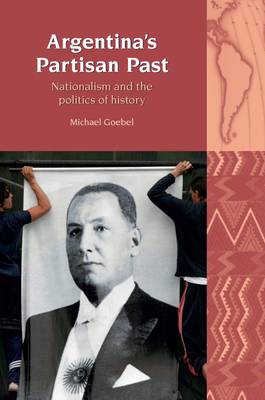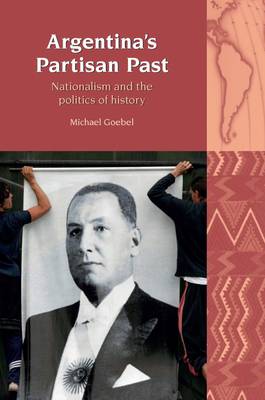
- Afhalen na 1 uur in een winkel met voorraad
- Gratis thuislevering in België vanaf € 30
- Ruim aanbod met 7 miljoen producten
- Afhalen na 1 uur in een winkel met voorraad
- Gratis thuislevering in België vanaf € 30
- Ruim aanbod met 7 miljoen producten
Omschrijving
Argentina's Partisan Past is a challenging new study about the production, the spread and the use of understandings of national history and identity for political purposes in twentieth-century Argentina. Based on extensive research of primary and published sources, it analyses how nationalist views about what it meant to be Argentine were built into the country's long drawn-out crisis of liberal democracy from the 1930s to the 1980s.
Eschewing the notion of any straightforward relationship between cultural customs, ideas and political practices, the study seeks to provide a more nuanced framework for understanding the interplay between popular culture, intellectuals and the state in the promotion, co-option and repression of conflicting narratives about the nation's history. Particular attention is given to the conditions for the production and the political use of cultural goods, especially the writings of historians. The intimate linkage between history and politics, it is argued, helped Argentina's partisan past of the period following independence to cast its shadow onto the middle decades of the twentieth century. This process is scrutinised within the framework of recent approaches to the study of nationalism, in an attempt to communicate the major scholarly debates of this field with the case of Argentina.
The book is a valuable resource to both students of Argentine history and those interested in the ways in which nationalism has shaped our contemporary world.
Specificaties
Betrokkenen
- Auteur(s):
- Uitgeverij:
Inhoud
- Aantal bladzijden:
- 284
- Taal:
- Engels
- Reeks:
- Reeksnummer:
- nr. 11
Eigenschappen
- Productcode (EAN):
- 9781781380093
- Verschijningsdatum:
- 27/03/2014
- Uitvoering:
- Paperback
- Formaat:
- Trade paperback (VS)
- Afmetingen:
- 152 mm x 231 mm
- Gewicht:
- 476 g

Alleen bij Standaard Boekhandel
Beoordelingen
We publiceren alleen reviews die voldoen aan de voorwaarden voor reviews. Bekijk onze voorwaarden voor reviews.











